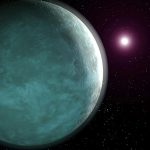Key Takeaways:
- New research suggests that the universe may be constantly evolving and adapting its physical laws to achieve stability.
- The paper, authored by researchers from Microsoft and Brown University, proposes applying Darwinian natural selection to cosmology.
- Over time, simpler physical laws of the universe may have evolved into more sophisticated ones.
- This concept challenges the idea that the laws of physics are fixed and immutable.
- The research explores the possibility of a higher-order universal law that transcends scientific fields.
An autodidact is an individual who acquires knowledge in a particular subject without the guidance of a teacher or formal education. Notable examples of such self-taught experts include Leonardo Da Vinci, who mastered 16 languages; Kató Lomb, a prolific Hungarian interpreter proficient in at least 17 languages; and Julian Assange, the founder of WikiLeaks. Now, there might be a new addition to this illustrious list: the vast cosmos. Recent research, which has been published on the pre-print server arXiV (indicating that it has not yet undergone peer review), suggests that the universe could be continually learning how to evolve into a more stable state.
The study, authored by researchers from Microsoft and scientists from Brown University, among others, proposes that all the observable laws of physics have gradually developed over time. To comprehend the evolution of these laws, the researchers suggest applying the concept of Darwinian natural selection to cosmology.
To elaborate, as the universe has sought stability over time, the basic laws of physics it initially relied upon have evolved into more complex forms. For instance, why do certain species, like cats and dogs, persist in our world while others, such as trilobites or dinosaurs, have become extinct? Analogously, just as organisms adapt to their environment and pass on favorable traits to their offspring through natural selection, the universe has continually refined its fundamental laws to ensure its continuity.
Consider an early version of the universe where the concept of gravitational attraction between objects was less developed. In such a scenario, Newton’s law of gravitation, which describes the gravitational force between two objects as directly proportional to the product of their masses and inversely proportional to the square of the distance between them, may not have held true. In this simpler universe, perhaps gravity was a static force, resulting in uniform gravitational pull across celestial bodies like the Earth and the moon. This line of thinking can be applied to other fundamental laws of physics as well.
Over time, the researchers suggest, the universe has autonomously refined its system, leading to the emergence of fundamental laws. This parallels the concept of self-learning systems in artificial intelligence, where algorithms evolve and adapt over time. In the context of cosmology, these self-refining processes manifest as the development of new laws of physics.
The paper delves into the intersection of cosmology and biology, proposing the existence of a mechanism inherent in the fabric of the natural world through which the universe learns its laws. This implies that there may exist overarching laws of the universe that transcend traditional scientific disciplines and govern the fundamental laws of physics.
Bruce Bassett, a professor at the University of Cape Town, emphasizes the importance of exploring interdisciplinary links in knowledge acquisition, noting that human categorization of knowledge into separate fields may hinder the recognition of commonalities and universal principles.
However, the concept of a self-teaching universe challenges human comprehension due to our limited scientific frameworks. Renowned cosmologist Neil deGrasse Tyson aptly remarks, “The universe is under no obligation to make sense to us.”
Unlike humans, the universe operates without the need for competition or conscious thought. Anthropocentric language, such as terms like “compete” and “mind,” may inaccurately anthropomorphize the cosmos. Despite our linguistic limitations, the universe operates independently of human perception.
The researchers acknowledge the speculative nature of their ideas, emphasizing that they represent early attempts to formulate a new theory. Nevertheless, they assert the necessity of embracing radical ideas in theoretical physics as a means of navigating the complexities of the universe. This willingness to explore unconventional concepts may lead to unforeseen breakthroughs, challenging scientists to venture into uncharted intellectual territory.


